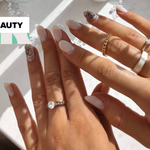His name is Diishan Imira, and Black salon owners and hairstylists, especially weaveologists, need to know his name.
Why? Because in an unprecedented move of innovation and market penetration, he has taken one our favorite pastimes—getting our hair did—and combined it with distribution channels to change how business is done in the multibillion dollar African-American hair products game.
Imira is the CEO and co-founder of Mayvenn, an Oakland, California-based, hair extension company that partners with stylists who serve as the salesforce for the hair extensions their clients buy. For every bundle of hair sold through a stylists’ Website, they receive a 20%-25% commission.
He started the business thinking he was simply helping out his sister. “My older sister is a stylist in LA now, and she wanted to be in the business of selling the hair extensions that she used every day,” says Imira, 35, who will be sharing more of his story at the ESSENCE Festival Money & Power Expo on Friday, July 1.
Only five percent of hair salons and stylists that cater to Black women in the U.S. carry or sell the extensions they use on clients. That means that 95% of us are trotting down to our local beauty supply store for our Remy and Brazilian bundle.
“It’s not because we didn’t want to become owners,” says Imira, who says the products sold on Mayvenn are human hair sourced from Asia that come in five different textures. “We often lacked the network, the access to the products and the capital for inventory to be able to hold and manage these products in our store,” he says.
That call from his sister was fortuitous. “It was 2012, I had just finished my MBA and I was working in East Africa doing an internship at Ernst & Young. I knew I wanted to start an online company, but I didn’t know what I wanted to do.”
An avid traveler who had been importing products—including sneakers, furniture and art—from all over the world, he decided to help his sister out by finding some suppliers, getting different hair samples and bringing them back to Oakland. “My first stop was other hair salons to see if it was good quality. They all asked, “Can you get more?”
“I was selling hair extensions out of the back of my car and I started to understand the bigger picture of distribution of these products,” he says. This was bigger than hair extensions. “What we’re actually talking about is a $9 billion African American hair products market that hasn’t been touched by technology,” he says.







